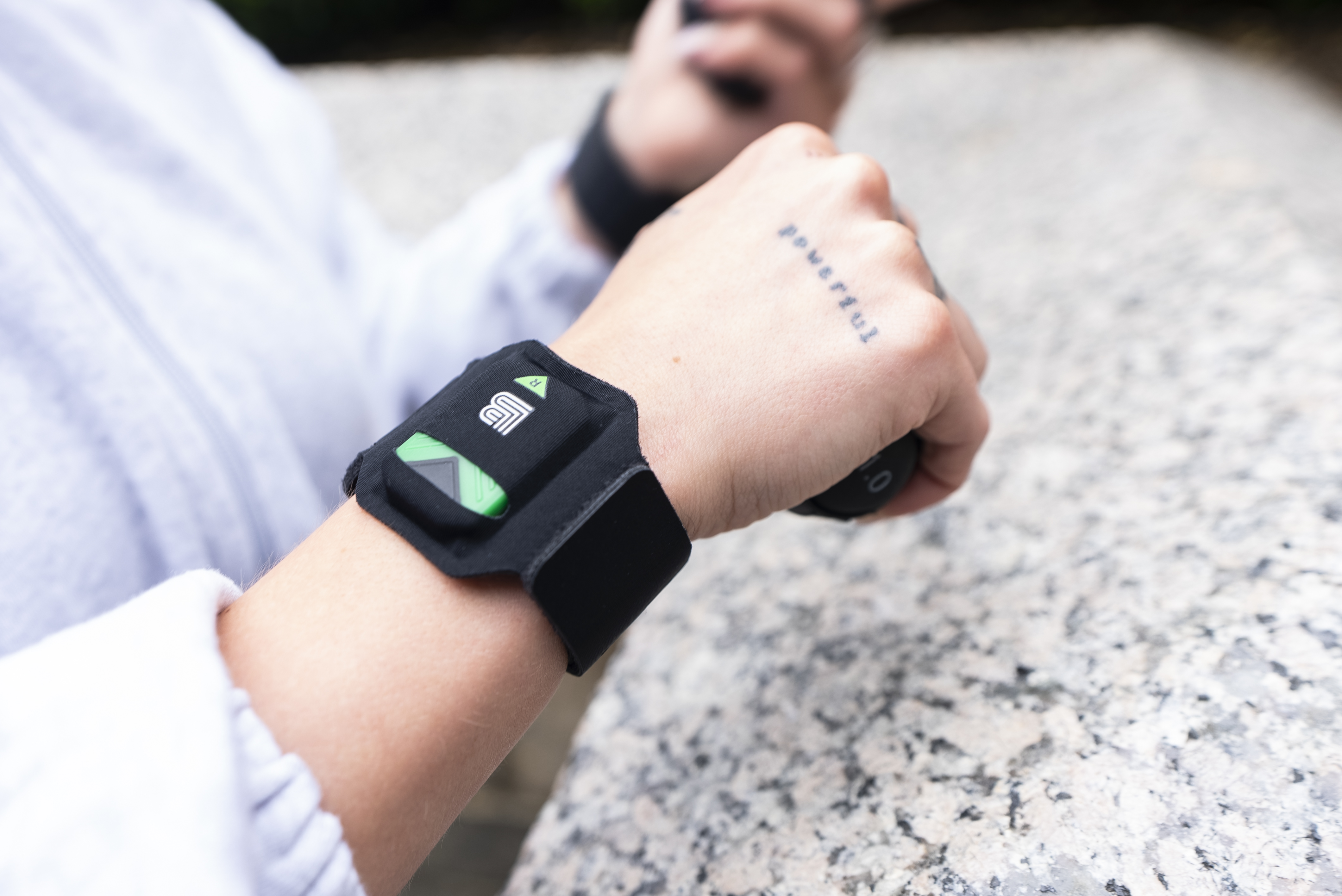I’m confident I’m not alone when I say that space has been a major barrier of entry between me and fully embracing home fitness. I live in New York City, and things are already tight without having to deal with a treadmill, bike or, for that matter, a big, connected punching bag. Thankfully, a number of these companies have responded with more flexible systems, from Peloton’s Guide to Tempo’s Move.
Today, Liteboxer is introducing one of the most portal systems I’ve seen, the aptly named Go. The system is built around a pair of sensors strapped onto the user’s wrists. The company opted for a hardware-as-a-service model here — relying on subscription fees rather than the standard up-front hardware cost.

Image Credits: Liteboxer
It’s a definite commitment — either $16 a month for a year or $14 a month for 2 years. Both of those have the hardware tossed in as part of the overall cost. If you’d really rather pay up front, however, you can plunk down $100 for the sensors and go $19, month to month. If you already subscribe to the VR service or own Liteboxer hardware, you can get access to the new offering without a monthly fee, if you opt to buy the new sensors outright.
Along with the wrist-wrap sensors, the kit also includes a tablet stand, 1-pound egg weights and a case. The connected app includes trainer-led on-demand workouts and select music from the Universal Music Group catalog.

Image Credits: Liteboxer
“We’ve been heads down working on the product for a little over a year and truly believe Liteboxer Go is the answer for those looking to make their workouts accessible no matter where they are — even in the comfort of their own home,” CEO Jeff Morin says in a release. “As I look into the future of at-home fitness, I truly believe that it’s vital to ensure everyone can affordably work out at home with amazing content and skip the clunky hardware. We’re on a mission to make working out accessible no matter what.”
“Clunky hardware” is some strong words from a startup that’s built its name name on big connected devices, but the sentiment is appreciated. More portable home fitness solutions make sense, and depending on how you look at it, $14 to $18 a month could qualify as “affordable” — certainly it’s cheaper than a gym membership.
As interest in home robotics regresses to the mean amid reopening, I’d anticipate more companies shifting their efforts toward increasingly portable solutions.















 English (US) ·
English (US) ·